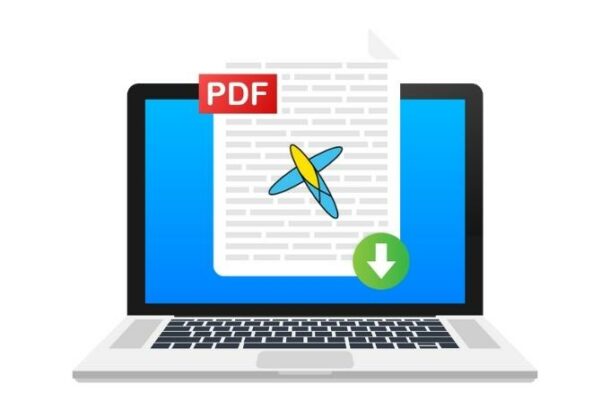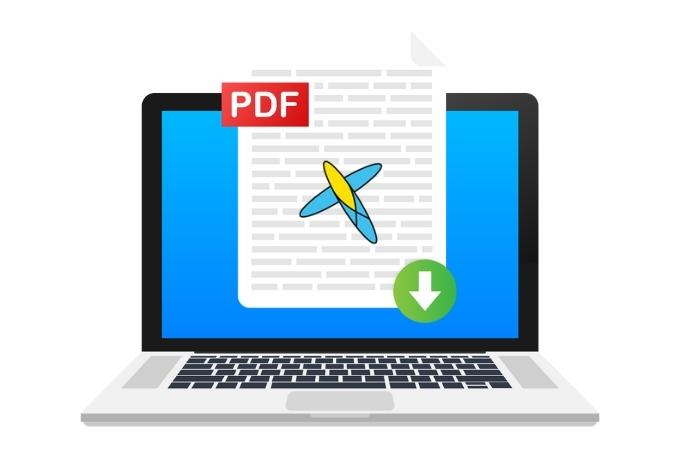You are an Enterprise Change Agent, Agile Coach, or a leader looking to improve your ability to work with complex adaptive systems. You have heard that systems coaching can be a valuable tool, but you are unsure what it is or how it can help you. This article will explain what systems coaching is and how it can help coaches and leaders improve their potential to work with complex problems and investigate if there are even better leadership styles or approaches.
Systems are everywhere—for example – the automobile as a system.
No single car part can take you from point A to point B by itself. The wheel, axle, seat, and motor must work together for the car to move.
This is also true for a company. An organization is not just the sum of its parts. It’s the product of their interactions. But unlike a car, your organization is a complex system of people and relationships. And unlike the elements of a vehicle, people have their thoughts, feelings, and behaviors. They make organizations not just complex but also dynamic, adaptive, and unpredictable. Today’s organizations operate in a more interconnected world than ever before. So how do you make decisions, solve problems and manage change in this complex environment?
Systems Theory
System theory was developed by Ludwig von Bertalanffy, a biologist who wanted to find a way to explain complex systems in terms of their parts. He believed you couldn’t understand a system by looking at it in isolation. You had to look at the whole system and how its parts interact.
To understand things like communication within an organization, we must look at it from a systemic perspective. It means considering the sender, the message, the receiver, and the context in which it all takes place. It also means understanding how all these elements interact with each other.
Communication is not just about sending and receiving messages. It’s also about creating shared meaning between two or more people.
Systems Thinking
Systems thinking is a way of looking at the world that considers the interconnectedness of everything. You have to look at the whole system and how its parts interact. But you also need to understand people’s motivations so you can design things that will make them act in a certain way. We often abstractly look at systems, making us lose sight of people’s experiences. Or we focus only on people and miss the more significant dynamics at play. The key is to zoom in and out between these different perspectives to get a complete view of our systems.
By understanding the system-wide influences on single-person behaviors and the many relationships between individuals, it may be possible to fully understand how and why the individual created these actions at the time.
What is Systems coaching?
Systems coaching is a relatively new field that is growing in popularity. Systems coaches help overcome the challenges associated with working with these systems and help clients achieve their desired results. They serve as a liaison for the district leadership teams and, if required, school leaders (professional coaching programs, mentoring, training methodologies, facilitating) for leadership development or any organization to guide systems intervention and sustainable organizational behaviour change.
To be successful, systems coaches need to have several skills, including the ability to:
- Understand complex adaptive systems and particular relationship systems
- See the organization as a whole new world and facilitate change for better decisions
It can be challenging to be productive when you feel like you’re constantly swimming against the current. You try to get organized, but your thoughts and ideas keep escaping. You start to work on one task but get interrupted and can’t seem to pick up where you left off. Before you know it, hours have gone by, and you haven’t accomplished anything. The good news is that you can take steps to overcome them.
Complex Adaptive System (CAS)
A CAS is a system of numerous agents interacting to produce the observed behavior. CAS are systems composed of multiple agents that interact with each other to create the observed behavior. The agents can be human beings, things, or ideas. The system can be as small as a family or as large as an organization.
Elaborating on these three properties of CAS shows how they benefit the systems coaching approach.
- Self-organization is the ability of a system to create its structure and order.
- Emergence is the process by which something new arises from the agents’ interactions in a system.
- Adaptation is the ability of a system to change its behavior in response to feedback from its environment.
All three of these properties are essential in system coaching. Self-organization allows coaches to work with teams to create their structure and order. Emergence will enable coaches to help teams develop and build relationship systems; coaching focuses on nurturing new ways of working and adapting to change. Adaptation allows coaches to help crews respond to feedback from their environment.
Organization Relationship Systems Coaching and The Third Entity
ORSC is an operating system that helps to manage and understand relationships between people. Relationship systems coaching focuses on your whole client and allows you to look at the bigger picture at play. It is a more effective strategy that considers all the different parts of your client and how they interact with one another. It happens without any planning and is an example of emotional intelligence and social intelligence in the workplace.
This is an example of The Third Entity, a term that refers to the group of people in a relationship system, such as family system dynamics, work team, or couple. Jungian scholars coined the term also called collective consciousness. Systems Coaches can benefit from ORSC principles, which are based on Systems Theory, Process Work, Family Systems Therapy, Professional Coaching, Alternative Dispute Resolution, Co-Active Coaching, and more. Relationship Systems Intelligence is the focus of this approach. It helps create sustainable and resilient teams, organizations, and families.
As a systems designer, I’ve learned that we must think about people and their mental models when solving complex problems. To do this, we must embrace a human-centered approach to systems thinking. It means having a mindset and methodology that focus on people first. Peter Senge, the author of The Fifth Discipline, describes it as a way of seeing the structures behind complex situations.
Human-centered system thinking
When it comes to problem-solving, we tend to focus on what we can see. But in a complex system, this can lead us only to treat the symptoms of a problem, not the source.
In a relationship system, everything is connected. We can’t solve problems without considering the whole picture and surfacing the root of the problem. We use the iceberg model to help us map out the layers of a problem. Step one, start with what you can see; events and behaviors are the tips of the iceberg. Zoom in on what’s happening, then zoom out to discover if there’s a relationship between events. Has the event occurred before? Has anything changed? And for most of us, this is as deep as we go when we want to solve a problem.
The system’s structure is the next layer of the iceberg for a systems coach. These structures are the tangible things you can design and redesign to influence your system. It can include policies, procedures, guidelines, processes, and more. Structures are often the cause of the events you’ve identified. Ask yourself, why aren’t events happening? Then think about the robust coaching model-based structure.

Systems Coaches
Systems Coaches work with all organization stakeholders to help them understand how they fit into the larger picture and how their work affects the rest of the organization.
They also help to identify systemic issues and design solutions that address those issues and mental models. System Coaches can also serve as a liaison for the district leadership teams and, if required – school leaders (professional coaching, mentoring, training methodologies, emotional intelligence, particular relationship system, facilitating) or any organization to guide systems change, intervention, and sustainable organizational change.
Benefits of Systems Coaching
There are numerous benefits to using systems coaching, including helping organizations and individuals overcome the challenges associated with working with these relationship systems.
Standard benefits:
- Increased productivity and commitment
- Creates a paradigm shift from engaging individuals to the entire group
- Creates sustainable and resilient teams, organizations, and families
Emotional benefits:
- A greater sense of accomplishment when goals are met.
- Individuals and students report great satisfaction from completing tasks and outcomes
How to implement systems coaching?
Implementing Systems Coaching requires four steps:
- Assess the current state of your team’s system and identify areas for improvement.
- Work with your team to create a new system that meets their needs.
- Tweak and improve the system to create sustainable and resilient teams.
- Hire systems coaches, train, mentor, and coach your team on how to use the new system effectively.
Many different coaching styles and approaches can be effective, depending on the needs of your team. Following the steps outlined above, you can start using systems coaching with your team today!
However, System Coaching is not the only way to build a high-performing team or an organization.
Agile Coaching
Agile coaching is a growing profession that helps teams and individuals work smarter and faster. Agile coaches usually have a background in project management, engineering, or software development. They also need to be able to work with people from all backgrounds and have strong facilitation skills. It means encouraging a culture of flexibility and innovation and working with teams to find solutions that work for them using team coaching techniques. Agile coaching is not about telling people what to do or introducing the team to agile methods and tools but also about helping them adopt the agile mindset.
Agile System Coaching
Agile systems coaching is still being developed and refined, which combines both Systems Coaching and Agile Coaching. So what can you expect if you decide to become an agile systems coach?
It is a robust coaching model that focuses on improving the system in which people work rather than trying to fix individuals. The goal is to help teams and organizations work more effectively by improving communication, problem-solving, creativity, and productivity by building sustainable and resilient teams using evidence-based practices. In addition, agile system coaching can help your team become more self-sufficient and autonomous. This type of coaching is also a great way to build team morale and create a sense of camaraderie.
How to be an Agile System Coach?
To become an agile systems coach, you need to have training in both systems coaching and agile coaching and a solid ability to communicate with people at all levels of the organization. As an Agile Coach you also need to be familiar with the principles of agile development and understand the agile methodologies and frameworks and how they can apply to different situations. They also need to understand the feedback loops and how changes in one part of the system can affect the rest. In addition, an agile systems coach needs to facilitate collaboration and communication between teams, business units, and the organization as a whole.
Conclusion
Systems Coaching and Agile Coaching are two necessary fields that work together to create successful agile systems.
A system coach helps an organization understand how all the parts interact with each other to produce the desired behavior. They also help design solutions to systemic issues, identify emergent behaviors, and facilitate communication between teams and business units. An agile coach works with teams to help them be more effective and efficient by teaching them the principles of agile development and how they can apply them in different situations. Together, this approach is an integrated robust coaching model based on creating sustainable organizational change and a robust coaching model. Are you interested in becoming a system or agile coach? Let us know in the comments!
We hope this blog post has helped you understand systems coaching and Agile systems coaching a bit better, and you can reach out to our business consultants to help you set up a systems team for success. Contact us for more info, plus you can also check out the upcoming webinars and ICAgile training courses.



